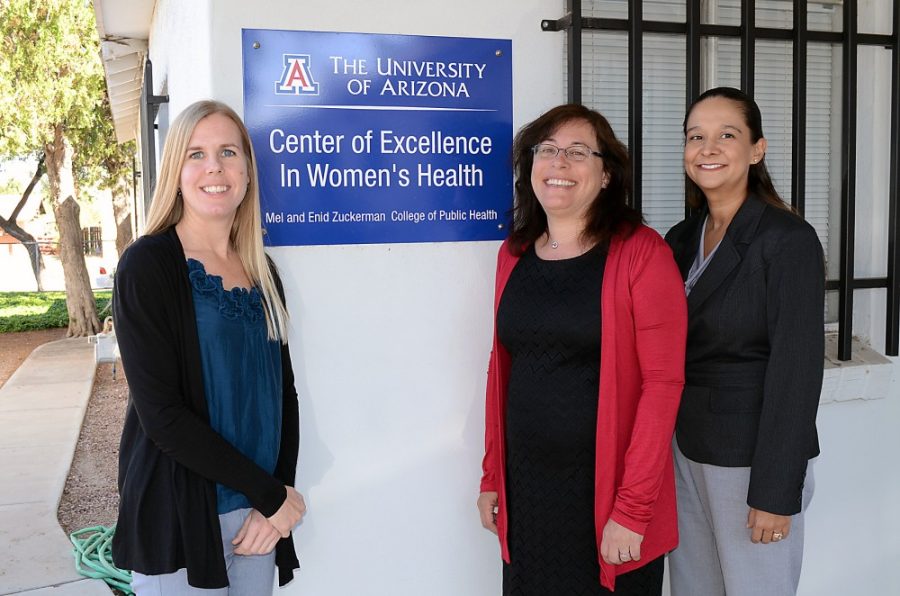The UA is working to help inform Latina women become about health issues so they can make better-educated decisions regarding health-related treatments.
The Center of Excellence in Women’s Health at the UA’s Mel and Enid Zuckerman College of Public Health was awarded an $878,000 grant by the Agency for Healthcare Research and Quality to provide Hispanic women of Pima County with information regarding cervical cancer, depression and sexually transmitted infections.
“We work a lot with Latina women, especially underserved women, and what we find is that a lot of them lack information that they need in order to make an educated decision about how to advocate for themselves and seek out treatment,” said Ada Wilkinson-Lee, an assistant professor in the department of Mexican-American studies and one of authors who outlined the specifications of what the grant would go toward.
The grant originated from a grant the college had in 2007 called the REACH Grant, which focused solely on educating women about cervical cancer. The new grant, called the Healthcare Research Quality grant, focuses on three major health concerns among Latina women in Pima County, said Martha Moore-Monroy, REACH program director. The grant was written and introduced by Dr. Francisco Garcia, Moore-Monroy and Wilkinson-Lee.
HRQ is essentially funding a three-year research project. The criteria for this project is Latina women, currently residing in Pima County between the ages of 30 and 65.
The research is carried out by “promotores de salud,” meaning promoters of health. The promoters, who are community health workers, use their personal connections to spread the word about their research and also attend local churches and community centers.
The promoters offer information about cervical cancer and regulations from the U.S. Preventive Services Task Force. The promoters then give a presentation about cervical cancer and teach the women ways to prevent it, detect it and deal with it. They also hand out flyers about cervical cancer and follow up with participants after they leave.
The promoters follow up after one month to help participants gain access to a physician or doctor’s office, then follow up again after three months. The three-month follow-up consists of checking to see if the women received a screening and what they are doing from there.
“We do these follow-ups to see if they are actually getting screened, and if they aren’t, then we want to know why,” Wilkinson-Lee said. “Instead of inferring the barriers that Latina women may have in this research, we want to exactly know what the barriers are. To some Latino communities, depression is a taboo, so they may not seek treatment for it.”
There are two phases of the grant; phase one focuses on cervical cancer, an uncontrolled growth of abnormal cells in the cervix. Latina women are twice as likely to die from cervical cancer than non-Hispanic white women, said Allison Hopkins, program director at the Center of Excellence of Women’s Health.
About 52 percent of the grant will go to indirect costs: electricity, building, computers and water, Hopkins said. The promoters’ pay is also a part of the project’s cost, along with materials for presentations and the pay for the team of researchers, she added.
Phase two focuses on depression and STIs. The project is currently in phase one, and phase two is anticipated to begin in June of 2014, according to Hopkins.
“The ultimate goal is to provide some hard evidence in the advocacy of community health workers,” Monroy said, “and translate important health information that will help reduce health disparities amongst Latina women in Pima County.”









